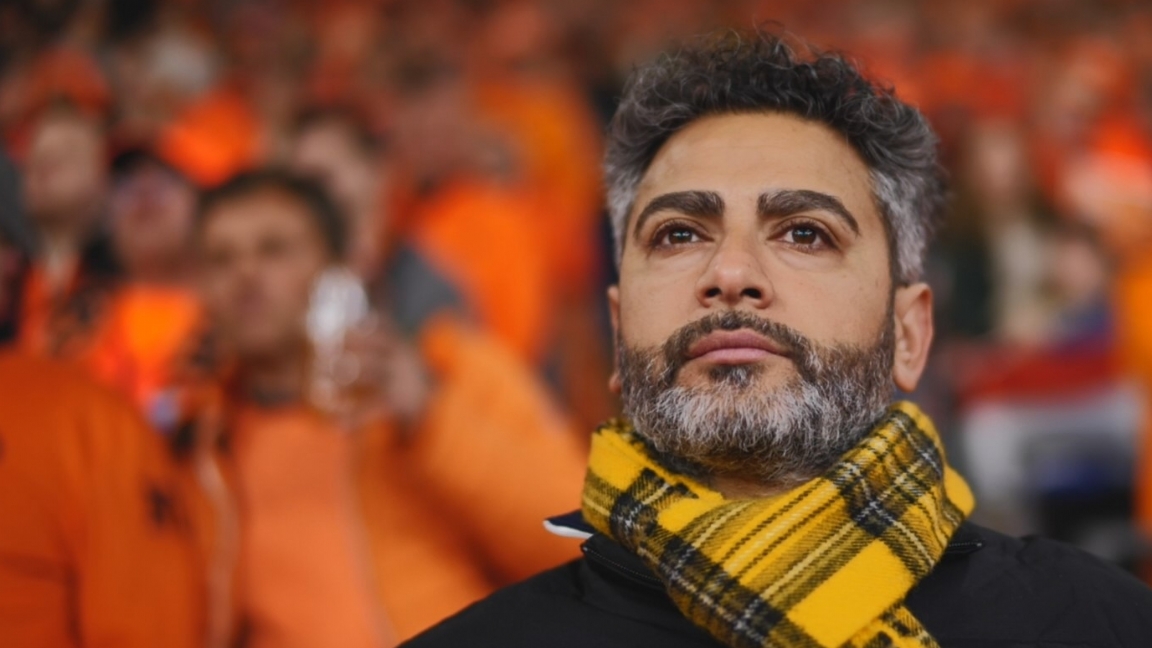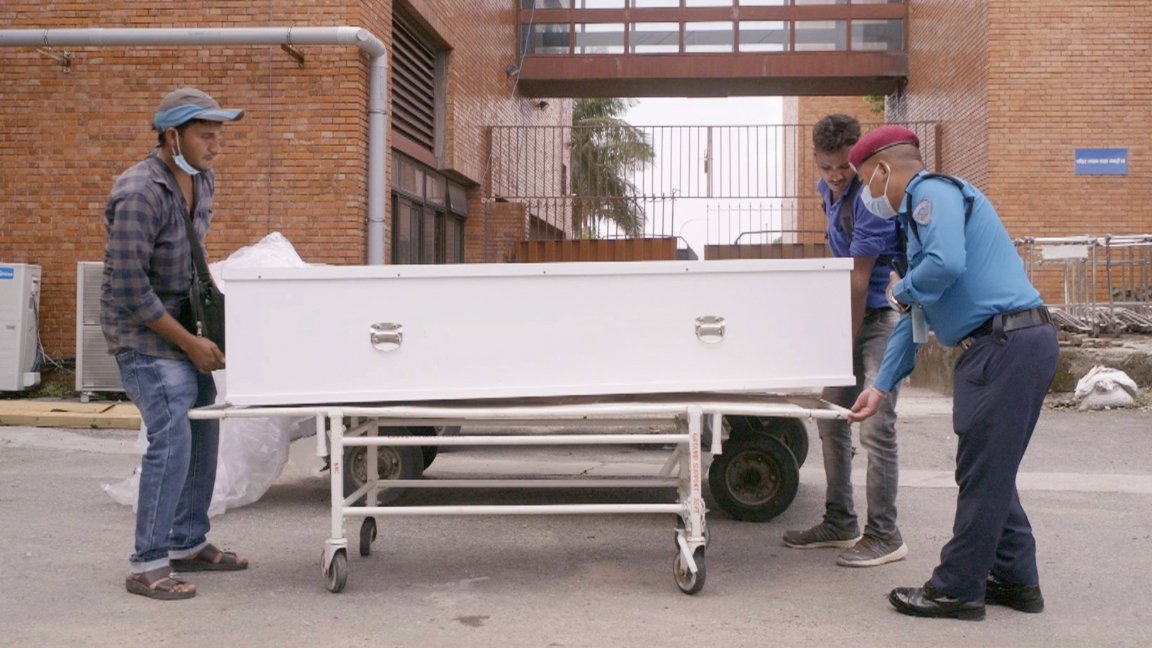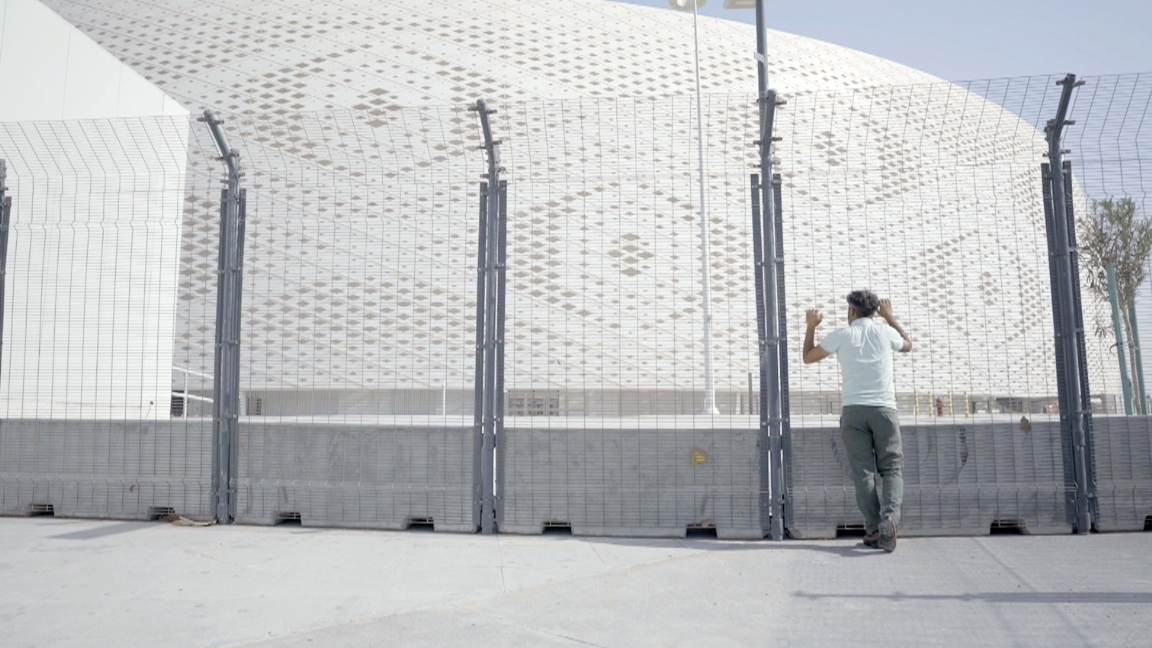![]()


In the foreseeable future, cities and living rooms will once again be lit up by the biggest football event on earth: the World Cup. But, behind the aim of all the spotlights now lies a leaden shadow full of terrible stories. Journalist Danny Ghosen made a documentary about it. His four-part VPRO series, In the shadow of the World Cuphighlights the story of guest workers from Nepal and their families. Football zone spoke with Ghosen about the victims, the role of the media and the umbrella football associations.
By Justus Dingemanse & Kevin van Buuren
“I hope that people can enjoy the Dutch at the World Cup,” emphasizes the documentary maker. “But that they also know that people have paid a high price for this.” Ghosen is referring to the thousands of guest workers from countries such as Bangladesh, India, Nepal and the Philippines. In February 2021 did The Guardian the shocking revelation that 6,500 of those workers died in the process of building stadiums and surrounding infrastructures; that counter would now stand at 6751.
However, that’s just the beginning. In his first episode, Ghosen speaks with Amit Ale Magar, who, unlike many fellow sufferers, returned from Qatar. “My kidneys have stopped working and I am having trouble breathing.” In the meantime, Magar tells about the harsh conditions of his work on the stadium in which the the Dutch squad plays against Senegal. “Sometimes we worked twelve hours or more a day. We only got an hour break. The food was not good and there was little water. I saw people pass out, myself had a nosebleed twice a week. But we had to keep working, otherwise we wouldn’t get paid.”

A coffin of a migrant worker arriving at the airport in Nepal.
People like Magar lost quality of life because of the working conditions, eventually maybe even actual years of life. According to Ghosen, the exact figure of the suffering is coffee grounds. “Every time someone dies, the family gets papers at home. ‘Cause of death: natural way’. That frustration also extends to family. They want to know how their father or son died. That is not mentioned.” As if that were not enough, the households are left with debts. Most workers take out a loan to travel to Qatar. When repayments are not made due to death, the debts are passed on to the next of kin.
Ranjit Rai’s family encountered such a scenario, who comes from a Nepalese village where the daily wage is a few euros. His brother went to work in Qatar to earn money for his family and village, to pay for the trip the family borrowed wealth from several residents. He never returned. Are dead: ‘naturally’. No guilty, no responsible, no compensation. Other families ran into similar situations after their father, brother or son was lured by shady companies. Ibrahim Nadaf worked for such a company. “To help them get a job in Qatar, I asked 450 to 530. The salary was 110 to 140 euros, but we said it was 160 to get them over the line.”
Ghosen calls a fund or safety net the only form of justice to compensate for affected families. A plan that the KNVB has also expressed its support for. “We try to build up pressure within FIFA to do that, but we are one of the 211 members,” Gijs de Jong, secretary general of the KNVB, tells Ghosen. In July, the national trade union FNV and players’ union VVCS, together with human rights organization Amnesty International, expressed their support for the compensation. Including several other European football associations, they issued an ultimatum to FIFA. Recently, however, Qatar made it clear that it would reject any request from FIFA for compensation arrangements. “A publicity stunt with racist motives,” the Qatari labor minister called the idea.

Danny Ghosen was secretly recording at a stadium in Qatar.
The decisiveness of FIFA is already questionable in advance. Of the 22 top men who awarded the World Cup to Qatar in 2012, no fewer than sixteen were suspected and/or accused of World Cup fraud. Huge bribes were allegedly taken to entrust Qatar with the organization. Gianni Infantino, president of the World Football Association since 2016, firmly claimed in January that the World Cup work in the emirate resulted in ‘only three deaths’. Finally, FIFA recently sent a general letter with the proposal to put the ‘focus on football’, not on the surrounding matters. That suspended ex-chairman Sepp Blatter briefly admitted that the World Cup in Qatar was a mistake because the country is too small for this gigantic sport, seemed like a drop in the ocean. How did it ever get this far?
“The major football associations have failed to do this. The World Cup has been found to be corrupt. It has been moved to winter. There were plenty of moments to say, ‘We’re not going to play football there.’ You don’t want to have those unions against you,” says Ghosen, who doesn’t like the choice anyway. “It is not a football country. There were zero stadiums there. Then there is talk about promoting football there… I don’t believe that. Such countries use the sport to polish their reputation. Sports washing.” Amnesty also mentions on the website the practice of countries that ‘use sport to not only give themselves a better image, but at the same time to divert attention from human rights violations’.
KNVB
The the Dutch fans who travel to Qatar for payment from the oil state to promote the World Cup from there are a striking example of this. “Then you as the KNVB have to say: we don’t want that,” says Ghosen. For his documentary, he was only too happy to ask questions to the football association, but the journalist was kept outside the press conferences. “First I was late, then it was too busy, then I wasn’t a sports journalist. When I was officially a sports journalist, instructions had been given not to let me in.” He suspects that the KNVB lacks decisiveness because of the fear of FIFA and Qatar.
That fear could stem from FIFA’s rule that a football association may not take action after third-party interference. Mostly governments. The message: keep politics and football separate. But, does that ingrained phrase still hold true today? “This has long been much more than just football, because human rights violations are such a social issue,” Ghosen explains. “Football players are now also socially involved. Memphis Depay and Denzel Dumfries stand against racism on Dam Square.” He therefore tried with all his might to pull a statement out of the the Dutch players, but was unable to intervene.
“The KNVB apparently does not want that, because then Qatar will be angry.” Due to the lack of transparency, the man with questions can only guess at answers. “Perhaps the federation has said: ‘Nobody talks about the World Cup, otherwise you won’t come to Qatar.’ I don’t know!” Liverpool manager Jürgen Klopp, in turn, thought it was unfair to question the players. According to him, the media has failed to look critically at the World Cup since 2012. Ghosen does see a role for the football players. “The media that covered it did a good job, I think. There is also no cooperation from organizations. When a footballer makes a statement, it goes around the world. And besides, footballers are people too. They also feel. I just want to ask, ‘You know what happened there. You go there to play football, score, cheer. How does that feel to you, as a human being?’”
